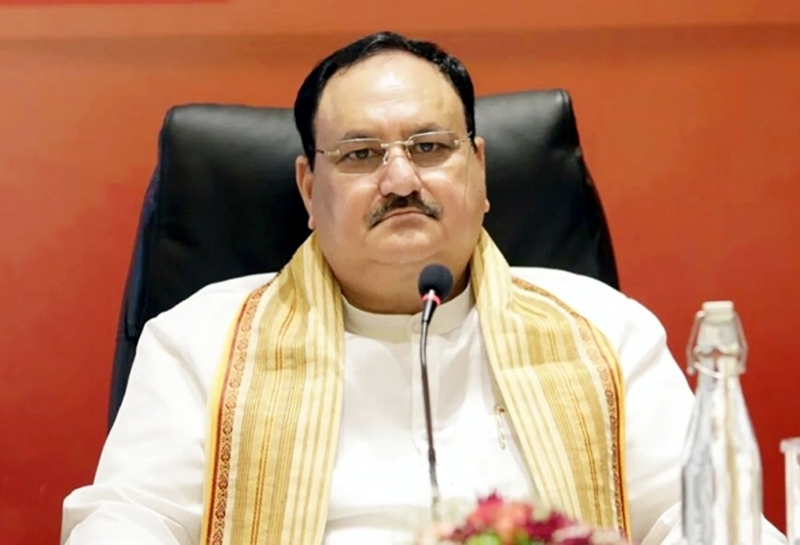Bhubaneswar, Feb 28: Union Health Minister J P Nadda announced on Friday that India is on track to eliminate tuberculosis (TB) by the end of this year, exceeding the global deadline by five years.
This statement was made during the opening of the 9th National Summit on Good and Replicable Practices and Innovations in Public Healthcare, held in Puri and organized by the Ministry of Health and Family Welfare (MoHFW) over a two-day period.
“According to the Sustainable Development Goals (SDG), we aim to eradicate TB by 2030, but we are set to accomplish this goal by 2025,” Nadda stated.
“So far, we have identified 500,000 TB patients as part of the ongoing 100-day TB Mukt Bharat campaign across 455 districts. We are intensifying efforts to include all aspirational districts and blocks in this initiative to eliminate tuberculosis by 2025,” he added.
Nadda encouraged health officials to regard public representatives as crucial messengers and vital resources for implementing government policies and programs.
“It appears that some officers may be falling short in this regard. Treat public representatives as spokespersons for your initiatives. Collaborate with the Panchayati Raj Institutions (PRI) for effective implementation of the TB Mukt Bharat campaign, alongside the 22 associated departments,” he advised.
He noted a significant rise in non-communicable diseases attributed to environmental factors.
“The Prime Minister has urged households to reduce oil consumption by at least 10 percent. This must be embraced as a movement with a comprehensive approach,” Nadda emphasized.
Highlighting the importance of quality healthcare at primary healthcare centers (PHC), he stated, “We need to fortify our foundation to ensure quality and accessible healthcare for India’s 1.4 billion citizens.” While acknowledging the shortage of doctors in the country, Nadda said telemedicine is a viable solution.
“We must ensure that specialist doctors’ advice reaches the PHC level and Ayushman Arogya Mandir Centers. A hub-and-spoke model should be adopted to tackle this issue,” he added.
He also proposed expanding drone services in healthcare to remote and hilly areas where transportation is challenging.
Nadda asserted that financial resources are available, stating, “If this government could establish 22 AIIMS in just ten years, we are prepared to allocate funding for quality healthcare services at the PHC level through the National Health Mission (NHM). However, you must guarantee that these funds are utilized effectively to enhance healthcare quality.”
He further mentioned that the ongoing universal screening program, which commenced on February 20, will run until March 31 to facilitate early detection of various diseases, including diabetes and three types of cancer.
“Our objective is to reach 370 million individuals through this campaign. We must implement it on a massive scale so that every person in our nation is aware of the government resources available,” he added.
Thanks to Ayushman Bharat, 90 percent of cancer cases have been diagnosed at early stages, within 30 days, leading to immediate treatment, he reported.
Nadda announced plans to open 200 daycare centers for cancer patients this year, with each district expected to host at least one center in the subsequent year.
Odisha Chief Minister Mohan Charan Majhi, who attended the meeting, reaffirmed the state’s commitment to enhancing and upgrading medical infrastructure. He noted that the Prime Minister initiated the construction of a 100-bed National Institute for Yoga & Naturopathy on October 29, 2024, and stated that steps are being taken to establish the National Institute of Pharmaceutical Education and Research and the All India Institute of Speech and Hearing.
The state has resolved to strengthen 7,358 urban and rural PHC & sub-centers as Ayushman Arogya Mandirs (AAM) to deliver comprehensive primary health care services, including yoga and wellness activities, Majhi commented.
“We have budgeted for the construction of a new facility for 1,338 Ayushman Arogya Mandirs in the upcoming year,” he added.
Aiming for a TB-free Odisha, a focused 100-day TB campaign has been initiated across 20 high-priority districts, as announced by the Chief Minister.
Present at the summit’s inaugural session were Odisha Health Minister Mukesh Mahaling, Union Health Secretary Punya Salila Srivastava, and NHM Managing Director Aradhana Patnaik. (PTI)


Leave a Reply